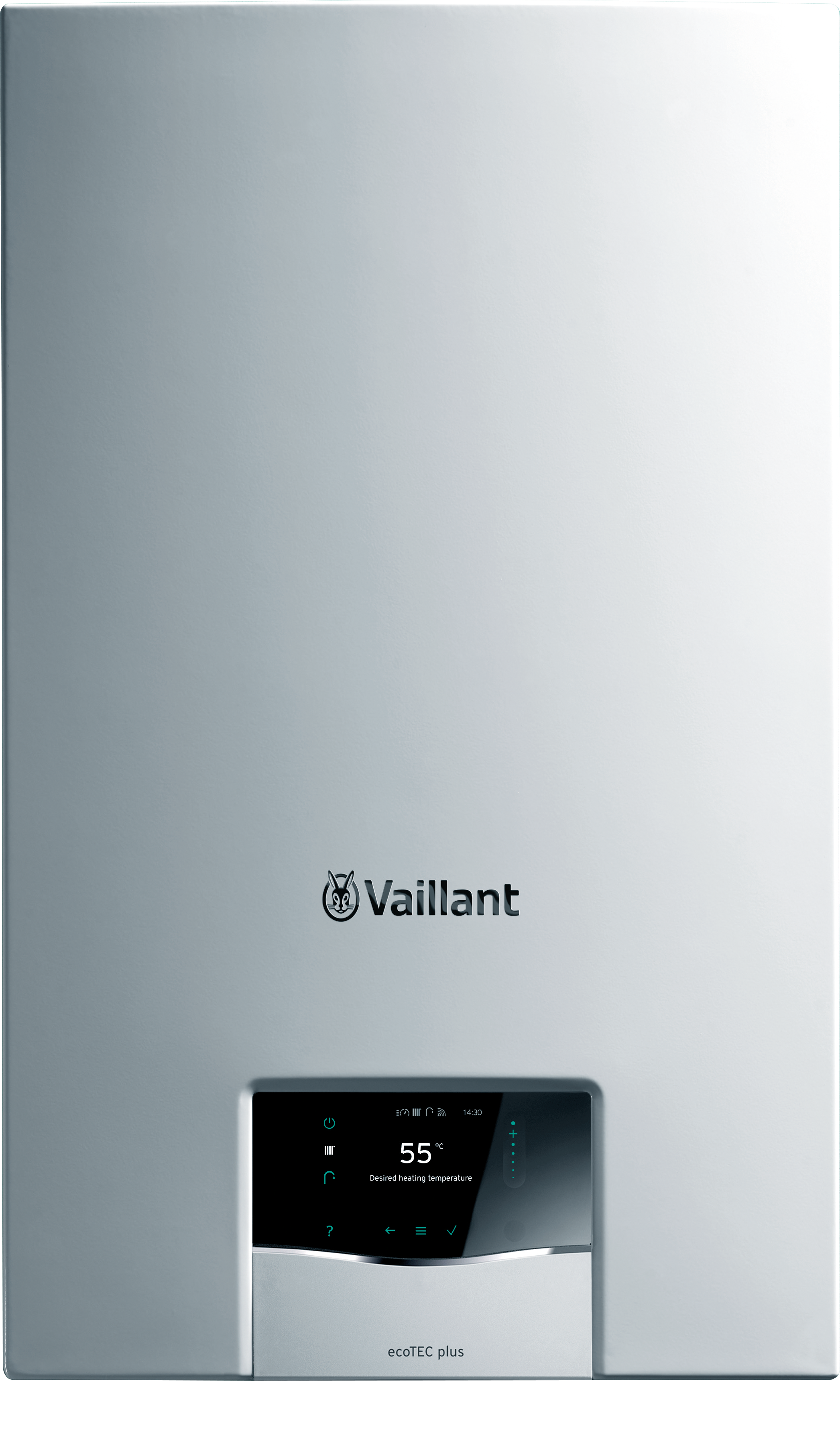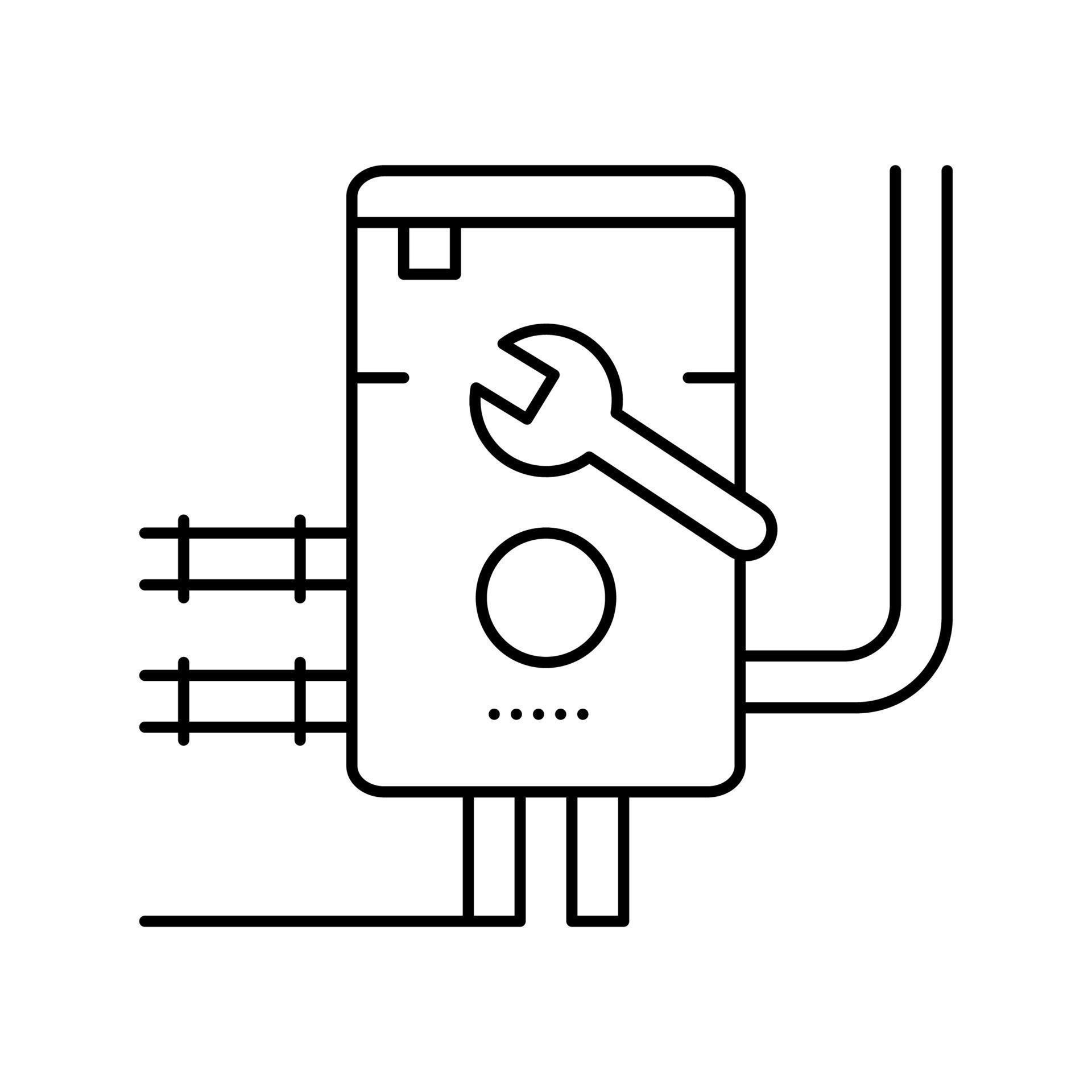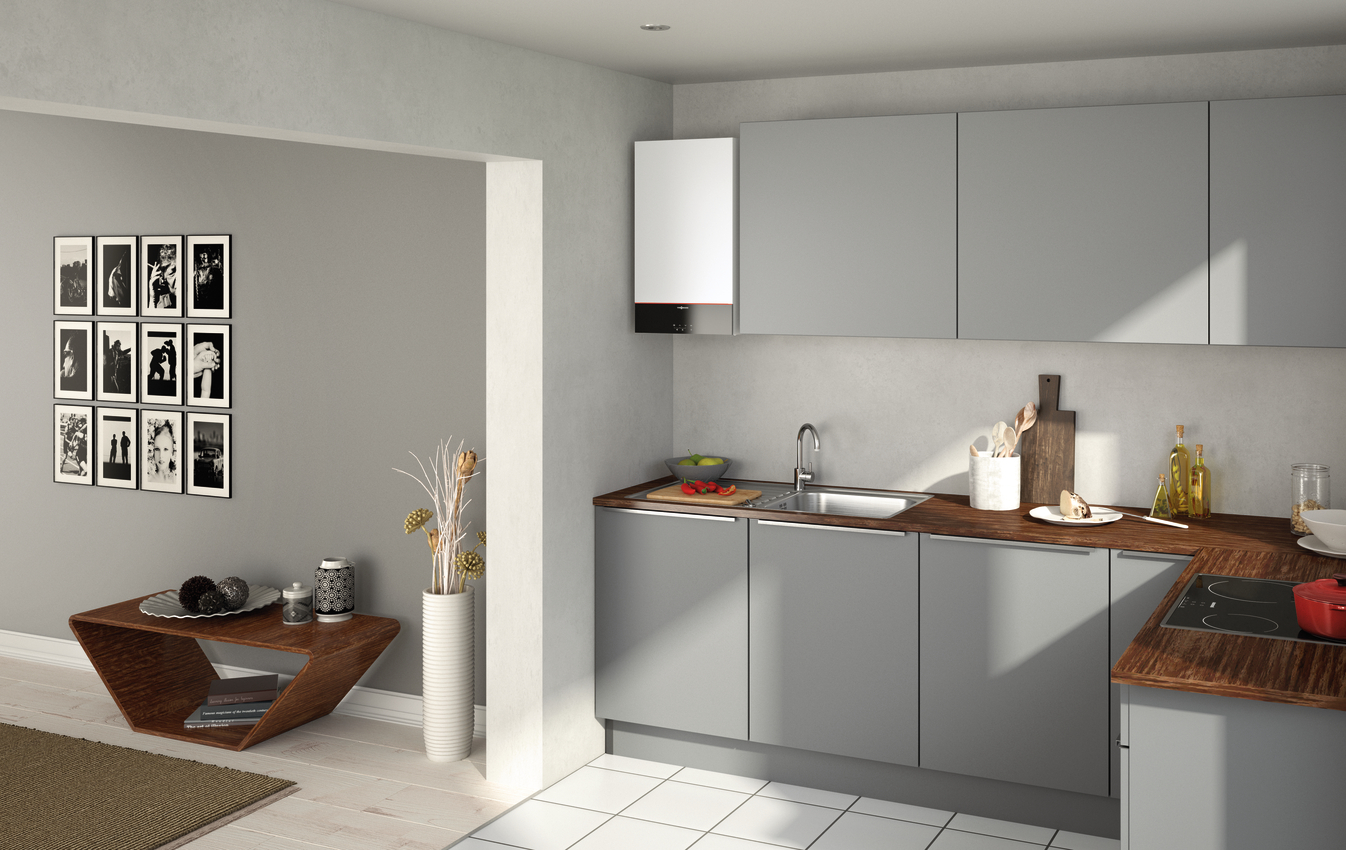What is your need for a boiler or an air source heat pump? Please specify in the form.






What is a combi boiler, anyway?
A combi boiler is simply a ‘combination boiler’ - it controls both your heating and hot water, delivering them both instantly on-demand and doesn’t require a hot water cylinder to be heated prior. Combi boilers are far more efficient than immersion heaters, so if you have one, it's definitely worth considering an upgrade.
Combi boilers are the home heating dream the human race has been striving towards since the discovery of fire.
Upgrading a traditional boiler to a combi boiler is a bucket list regular for most UK homeowners, sitting seven places above seeing the Pyramids and just one below breaking free from lifelong, crippling debt.
Imagine if the fastest sprinter was your postman, but he also did your bins. A combi boiler is like that... basically.
Pros and Cons of Combi Boilers
Guide to making the first step in your decision making
Have you repaired your boiler repaired more than twice or more in 1 year?
Do you want to remove a hot water tank?
Do you have an inefficient back boiler?
Is your boiler over 10 years old?
Is your boiler costing you more in energy bills?
Is there potential for your boiler to stop working?
Is your boiler out of warranty?
Do you think your boiler isn’t working properly?
Now, which one is more, yes or no?

As you can work out from the questions, these are the main reasons people choose to get a replacement boiler. Hopefully, this has helped you decide. However, read on for more information about what’s included with all our boiler installations.


Do you want a new system or a regular boiler with professional installation as soon as tomorrow? Get your free quote today.
Conventional/Regular Boiler Cost
Regular Boiler Costs
Boiler Type
Please note: Ultimately, an accurate boiler installation cost depends on various factors that are personal to your situation.
But exactly how much extra will you be paying?
Included in the cost of a boiler conversion is the full removal of your old boiler & water cylinder, newly upgraded pipework fed to the existing or new location of the incoming combi boiler and, of course, the new combi boiler itself and that’s a simplified version.
Putting you out of your misery early, you’ll roughly be looking at an additional £800 - £1200 worth of expense on top of the standard boiler swap cost.
When converting your regular boiler into a combi boiler, remember that any boiler manufacturer can be fitted so long as it’s the correct size and powerful enough for your hot water demands. Consider referring to our best combi boiler article to gain more insight than you ever thought possible.
They can no longer be repaired in accordance with modern regulations, and you will need to convert your system - most likely to a modern combi boiler.
Back boiler
The work involved in the conversion of a back-boiler is very much similar to a standard conversion in that it includes the removal of your entire existing system and introduction of the new combi and required combi pipework; however, it’s the awkward location of the back boiler behind your fireplace that incurs the sometimes significant extra cost.
Many installers and installation companies hate carrying out this work and will price themselves so high they can just about bear it or high enough to discourage customers.
Want a new boiler with professional installation as quickly as tomorrow?
Get your free quote today.
Want to have your boiler moved to a different location? Check out our "cost of moving boiler".
Want the exact price of a new boiler? Use our boiler quote calculator.

When converting your regular boiler into a combi boiler, remember that any boiler manufacturer can be fitted so long as it’s the correct size and powerful enough for your hot water demands. Consider referring to our best combi boiler article to gain more insight than you ever thought possible.
They can no longer be repaired per modern regulations, and you will need to convert your system - most likely to a modern combi boiler.
The final cost of a new boiler replacement
As you can see, there are a variety of factors that can impact the cost of the final boiler.
The above list is to be used as a guide only. Go here to get a fixed, accurate boiler replacement installation price for you.
Boiler price range
Boiler Costs by Manufacturer/Boiler Brand
Typically, most boiler brands have a boiler range that includes entry-level, mid-range and premium boiler models, which increase in price.
However, there are some differences between the boiler manufacturers, which are dictated by brand reputation, warranty length, and technical differences. For example, some boilers use plastic parts, while others only use brass.
With that in mind, here are the new boiler costs you can expect for some of the most popular boiler brands available in the UK:
Boiler Brand:
Combi Boiler Price Range
System Boiler Price Range
Conventional Boiler Price Range





10-year parts and labour warranty protection
Wide range of combi, regular and system boilers
Incredible performance and efficiency
£1,500- £3,500
£2,000 - £2,500
£2,000 - £2,500
Ideal
£1,300 - £2,500
£1,300 - £2,500
£1,300 - £2,500
Huge 10 year parts and labour guarantees
Awarded 'Which? Best Buy's status for 13 years running
Packed with cutting-edge, energy-saving technology
£1,300 - £2,500
£1,300 - £2,500
£1,300 - £2,500
£1,000 - £2,400
£1,000 - £2,400
£1,000 - £2,400
Lengthy warranties of up to 10 years
Powerful and efficient with excellent aftercare. German engineering, manufactured in the UK.
Stick to these fundamental principles, avoid any company sending a salesman disguised as a ‘surveyor’ to your home, and put in just a touch of boiler research – do that here, conveniently.
You’re now about as qualified as can reasonably be expected to get the most competitive new boiler cost and avoid being eyed by cowboys like an early-noughties PPI victim.
Or, for simplicity…
Buy from TTM Gas and Heating Services for the latest new combi boiler deals.
Choosing TTM Gas and Heating Services means you get fast, reliable service. Our website makes finding the right boiler simple, and with our expert team, installation is quick and professional. We're here to help you get warm again without the wait or the hassle.
TTM Gas and Heating Services registered pump installers replace a boiler heat pump with an approved air source heat pump installers and replace the boiler with a heat pump.
You can replace your boiler with a heat pump.
If you are looking for a more environmentally friendly and cost-effective energy source for heating and cooling purposes.
Replacing a gas boiler with an air source heat pump can cost anywhere from £2,400 to £12,350, excluding installation.
Gas boilers have been the go-to heating system for millions of homes in the UK for decades, but replacing a boiler with a heat pump is steadily becoming more common. With the UK government’s most recent update of the Boiler Upgrade Scheme, the grant level for air and ground source heat pumps jumped from £5,000 and £6,000 to £7,500. This means replacing a boiler with a heat pump is more affordable than ever.
Speaking of efficiency, heat pumps have a coefficient of performance (CoP) between 3 and 5, generating between 3 and 5 units of heat for every electricity unit. On the other hand, gas boilers achieve a CoP of around 0.9 (i.e. 90% efficiency rating), making heat pumps a more efficient heating solution.
In terms of costs, heat pumps require a bigger upfront investment. At the same time, ground-source heat pumps, apart from the heat pump itself, also need underground loops or boreholes, which contribute significantly to the total installation costs.
If you are considering replacing your gas boiler with a heat pump, you’ll need to find a trustworthy installer. However, if you do this alone, your search can drag on for hours or even days. Fortunately, we’re here to help.

Optimise your home and save the planet
We are an approved air source. Heat pumps installers
We will get you the best deal.
How much does replacing a gas boiler with a heat pump cost?
The cost to replace a gas boiler with a heat pump ranges between £2,750 - £14,050 for an air-source heat pump and £16,200 £49,000 for a ground-source heat pump installation.
Government incentives to reduce heat pump costs
As of 2024, the UK government offers several incentives to reduce the cost of replacing a gas boiler with a heat pump. Here are some key schemes for you to consider:
Let’s compare current average prices installed for gas boilers, GSHP and ASHP solutions.
Costs to Replace a Boiler With a Heat Pump
Type of heating system. Upfront cost range Installation, cost range Costs, granted by the Boiler Upgrade Scheme
Gas boiler £500–£4,000 £650 - £2,500 -
Air source heat pump £2,400 – £12,350 £350 – £1,700 £7,500
As you can see, the Boiler Upgrade Scheme can significantly reduce the cost of heat pump installation. So, don’t neglect getting information on existing grants and government incentives to lessen the financial burden of your home improvement project.
Should you replace a gas boiler with a heat pump?
If you ask yourself, "Should I replace my gas boiler with a heat pump?” the answer might be yes. Heat pumps are generally more energy-efficient and cost-effective in the long run than gas boilers. They are also more environmentally friendly.
All you have to do is fill out our short form, and we will have up to 4 heating engineers from our broad network of specialists reach out to you with quotes for their services. Then, compare prices to decide which installer you want to work with and secure the best deal for your new air source heat pump. Click below and request free, non-binding quotes today!
First things first, who are ttm?
Help
How much do new boilers cost?
What are the best combi boilers, heat pumps, and underfloor heating?
Get In Touch
Email: info@ttmgasandheatingservices.com
Phone: 0204 5978 462
Address Office: Homerton road, London, United Kingdom
Assistance Hours:
Mon – Fri : 9:00am - 5:00 pm
Our Team
The dedication and expertise of our exceptional team of plumbers
drive our success. Each team member is carefully selected for their
knowledge, skills, and commitment to providing our valued customers
the highest level of service.
FAQ's
T&C's


